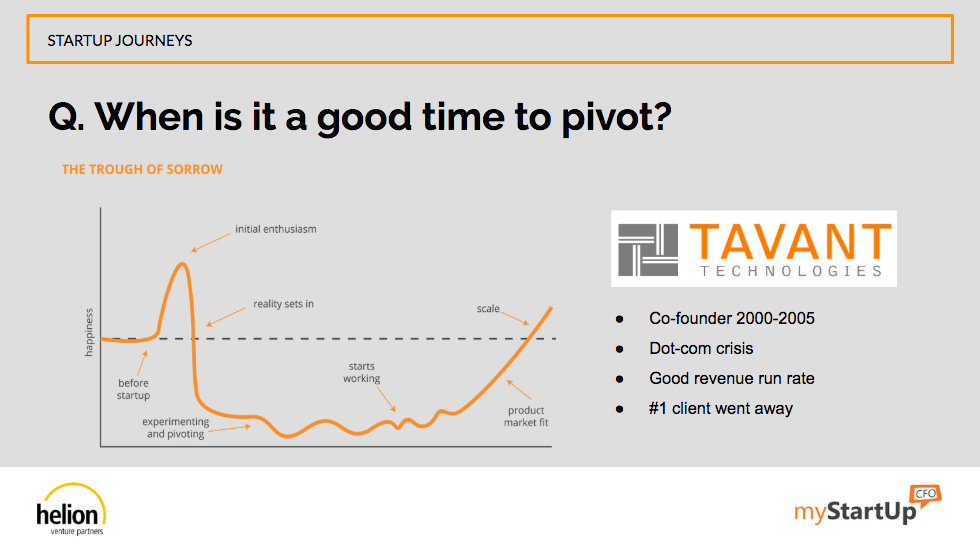“Ask most entrepreneurs who have decided to pivot and they will tell you that they wish they had made the decision sooner.”
― Eric Ries
Unfortunately for me, I don’t own a time machine.
Which is why some very important decisions that tortured me a lot at that time seem like a no-brainer in hindsight.
One of them is about business pivoting. As a founder, you would often find yourself walking a thin line, wondering whether to continue fighting this uphill battle or choose another battleground entirely. Is there a magic potion that tells you yes, this is the right time to pivot and not to persevere with the current strategy? Are there any external indicators? Or internal?
In a recent webinar called Pivot and Posture, I sat down with Ashish Gupta (a founder-turned VC-turned founder) where he gave me some really good business advice about pivoting.
Ashish told us the story of Tavant Technologies, a company he co-founded in the glory days of the web (March of 2000) as one of the earliest SaaS companies in the world. Tavant managed to raise money over two phones calls, without even a face-to-face meeting. This was a big win for the team at that time!
This high, however, soon crashed and burned. March passed, September arrived, and after speaking with prospects, they realized that the product was too early for the market. Their customers weren’t ready to buy what they were providing, and the money in the bank was dwindling.
It was at this point that Sarvesh Mahesh, Ashish’s co-founder, had the vision and grit to repackage themselves as a services company. The customers were happy because there existed a need gap, and buying services filled that more easily as opposed to a product.

Such a transition from SaaS to Services is incredibly tough to make, especially in a place like Silicon Valley, where people perceive it as giving up. Their investors, too, were not very happy, because they were thinking in terms of market cap – not cash flows.
But with courage and perseverance, Tavant successfully pivoted to a services company, and did incredibly well for a few years, with large customers writing them big checks.
A bulk of the credit for this goes to Sarvesh, the CEO, who had the clarity and vision to decide exactly when to make the pivot, and went all in to make sure the pivot happened successfully. He also had an almost sixth sense about the direction in which the market was moving, and the courage to put his money where his mouth was.
So when exactly is it a good time to pivot?
There is no right answer and, as Ashish mentioned, if you’re starting to suspect it might be time, chances are you’re already late.
An early sign that you might need to pivot is customer feedback: if your customers start to tell you that they don’t want what you’re offering, you should reconsider your business as well as its strategy.
In fact, this goes for people outside the company as well. Talking to people who aren’t financially invested in your company is a great way to learn what they think of it, and you can use these conversations to process their reasons as well.
So what’s the lesson?
That the warning signs will be in front of you as to when you should make a pivot. Talk to your customers and other entrepreneurs you know and pay attention to what they tell you. Most importantly, once you decide when you’re pivoting, bring all your conviction to it – things will get tough, and you would need the conviction to continue fighting to see another day.
Ashish and I discussed a lot more in the webinar, including the importance of perseverance (and how much of it is good), the role of timing, luck, and resilience, and much more! Check out the full webinar here.
If you have any doubts or questions, feel free to reach out to me via LinkedIn or contact us at sshroff@mystartupcfo.com. I run myStartUpCFO, a finance and accounting services company that provides on-demand CFO services.







